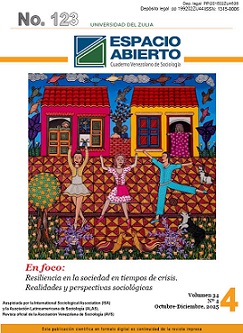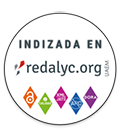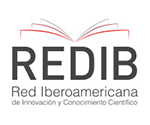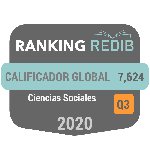Concept of Analysis in The Context of Critical Thinking
Resumen
In this study, the effect of the concept of analysis in Michel Foucault understands of knowledge on his general way of thinking and the type of critical thinking he wanted to create will be investigated. Although analysis is directly related to the analytical way of thinking in terms of Aristotelian logic, it is characterized separately from this context in Foucault’s thought. While Foucault positions analysis at the center of change in the context of the archaeological method, analysis in the Aristotelian sense is analytically focused. These ways of thinking, which are different from each other and often contradict each other, attribute different qualities to a common concept. In this study, the points where the meaning attributed to analysis in Foucault differs from the analytical way of thinking in the context of its relationship with other basic concepts will be included
Descargas
Citas
ARISTOTLE, (1984). “Metaphysics” (W. D. Ross, Trans.). In J. Barnes (Ed.), The complete works of Aristotle. (Vol. 2, pp. 1552–1728). Princeton University Press.
ARISTOTLE. (1994). “Physics” (R. P. Hardie & R. K. Gaye, Trans.). The Internet Classics Archive. http://classics.mit.edu/Aristotle/physics.html
ARISTOTLE, (2009). The Nicomachean ethics (D. Ross, Trans.; L. Brown, Ed.). Oxford University Press. (Original work written ca. 340 B.C.E.)
ARISTOTLE, (2011). “Posterior Analytics” (G. R. G. Mure, Trans.). In R. McKeon & C. D. C. Reeve (Eds.), The basic works of Aristotle. The Modern Library. (Original work written ca. 350 B.C.E.)
ARISTOTLE, (2011). “Prior Analytics” (G. R. G. Mure, Trans.). In R. McKeon & C. D. C. Reeve (Eds.), The basic works of Aristotle. The Modern Library. (Original work written ca. 350 B.C.E.
AUDI, R. (2010). Epistemology: A contemporary introduction to the theory of knowledge. (3rd ed.). Routledge.
AUDI, R. (2020). (Ed.), The Cambridge dictionary of philosophy (3rd ed.). Cambridge University Press, ISBN 978-1-107-10502-7 / 978-1-107-46274-0.
AYER, A. J. (1952). Language, truth and logic. (2nd ed.). Dover Publications.
BLACK, M. (1954). Problems of analysis: Philosophical essays. Cornell University Press.
CEVIZCI, A., (2013). “Analysis”, Dictionary of Philosophy. Paradigma Publications, İstanbul, 2013.
DELEUZE, G. (1988). Foucault. U of Minnesota Press.
DELEUZE, G. (2017). Postscript on the Societies of Control. In Surveillance, crime and social control. (pp. 35-39). Routledge.
FOUCAULT, M. (1970). The order of things: An archaeology of the human sciences. (A. Sheridan, Trans.). New York: Pantheon.
……… (1971). Orders of discourse. Social science information, 10(2), 7-30.
………….. (1977). Discipline and punish: The birth of the prison. trans. Alan Sheridan (New York: Vintage, 1979), 227.
………. (1978). The history of sexuality. Volume 1, an introduction (R. Hurley, Trans.). Pantheon Books. (Original work published 1976)
…………. (1979). Authorship: what is an author?. Screen, 20(1), 13-34.
………….. (1980). Language, counter-memory, practice: Selected essays and interviews. Cornell University Press.
………. . (1984). Nietzsche, genealogy, history. (D. Bouchard, S. Simon, Trans.). In P. Rabinow (Ed.), The Foucault reader (pp. 76–100). Pantheon Books.
……….. (1997). Truth and power. In L. Hochroth, T. Keenan (Eds.), The political function of the intellectual. Black Rose Books. (Original work published 1977)
………. (2000). The subject and power. (R. Hurley, Trans.). In J. D. Faubion (Ed.), Power: Essential works of Foucault 1954–1984 (Vol. 3, pp. 326–348). The New Press. (Original work published 1982)
…………... (2001). An Archaeology of the Human Sciences. Routledge.
…….... (2003). “Society Must Be Defended”, Lectures at the Collège de France, 1975-1976 (Vol. 1). Macmillan.
……….(2013). Archaeology of knowledge. Routledge.
…………. (2014). Wrong-doing, truth-telling: The function of avowal in justice. University of Chicago Press.
FOUCAULT, M., & CARRETTE, J. R. (2013). Sexuality and power (1978). In Religion and culture. (pp. 115-130). Routledge.
FOUCAULT, M. & DREYFUS, H. L. & RABINOW, P. (1983). “Afterword: On the genealogy of ethics: An overview of work in progress”. Michel Foucault beyond Structuralism and Hermeneutics. 229-52.
GUTTING, G. (2014). The Obscurity of “Différance”. A Companion to Derrida, 72-88.
HARE, R. M. (1993). Essays on bioethics. Oxford University Press.
IRWIN, T. H. (1988). Disunity in Aristotelian virtues: a reply to Richard Kraut.
MCCORMICK, R. A. (1989). “Moral theology 1940–1989: An overview”. Theological Studies, 50(1), 3-24.
MCHOUL, A. & GRACE, W. (2015). A Foucault primer: Discourse, power and the subject. Routledge.
NIETZSCHE, F. W. (2017). The genealogy of morals (Vol. 4, p. 235). Boni and Liverwright.
NIETZSCHE, F. (1974). The gay science (W. Kaufmann, Trans., 2nd ed.). New York, NY: Vintage International. (Original work published 1882)
RIZATEPE, H. (2003). Dictionary of Philosophy, Volume; 1, Editor: Ahmet Cevizci, Etik Publications, İstanbul.
ROSS, W. D. (1955). Aristotle. Parva Naturalia. A revised text with introduction and commentary.
TAYLOR, C. (2014). “Aristotle on Practical Reason”. The Oxford Handbook of Topics in Philosophy. (online edn, Oxford Academic.

Esta obra está bajo licencia internacional Creative Commons Reconocimiento-NoComercial-CompartirIgual 4.0.
Los autores/as que publiquen en esta revista aceptan las siguientes condiciones:
- Los autores/as conservan los derechos de autor y ceden a la revista el derecho de la primera publicación, con el trabajo registrado con la licencia de atribución de CreativeCommons, que permite a terceros utilizar lo publicado siempre que mencionen la autoría del trabajo y a la primera publicación en esta revista.
- Los autores/as pueden realizar otros acuerdos contractuales independientes y adicionales para la distribución no exclusiva de la versión del artículo publicado en esta revista (p. ej., incluirlo en un repositorio institucional o publicarlo en un libro) siempre que indiquen claramente que el trabajo se publicó por primera vez en esta revista.
- Se permite y recomienda a los autores/as a publicar su trabajo en Internet (por ejemplo en páginas institucionales o personales) antes y durante el proceso de revisión y publicación, ya que puede conducir a intercambios productivos y a una mayor y más rápida difusión del trabajo publicado (vea TheEffect of Open Access).

















